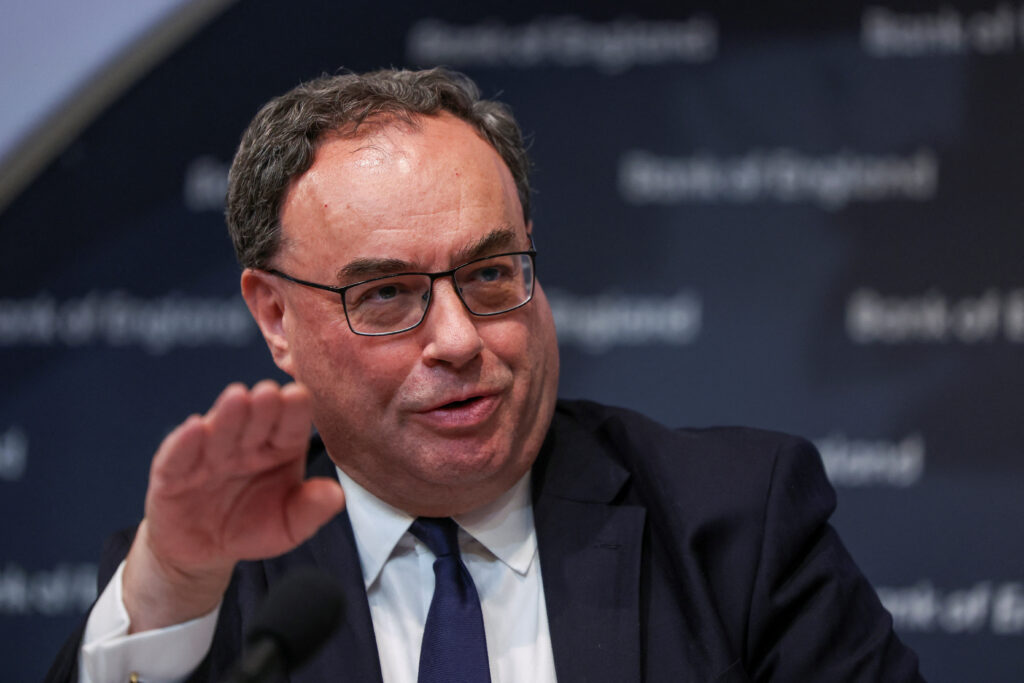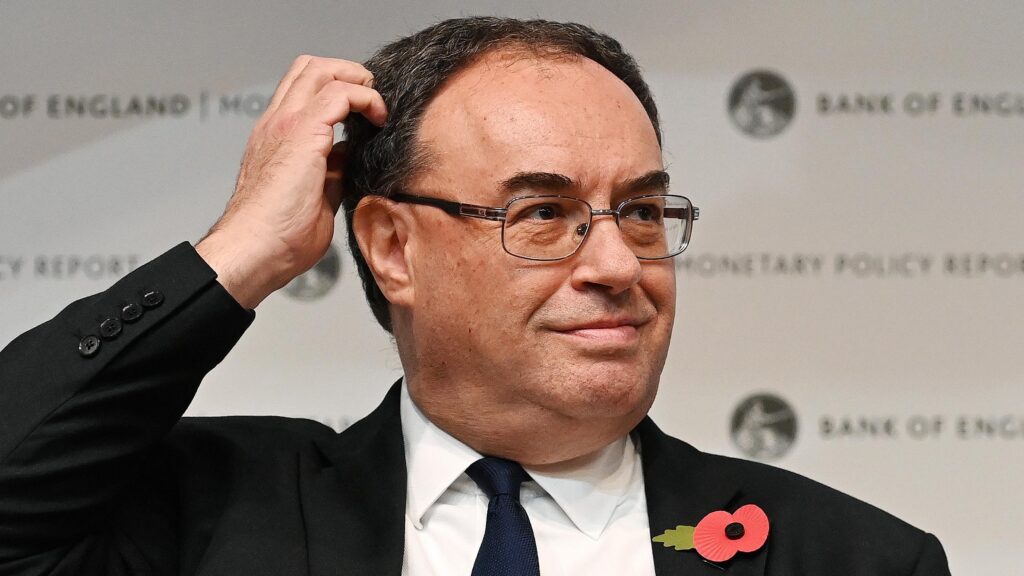Andrew Bailey Early Life and Education: The Accomplished British Central Banker
Andrew John Bailey was born on 30 March 1959 in Leicester, England. He attended Wyggeston Boys’ Grammar School in Leicester before pursuing higher education at Queens’ College, Cambridge.
At Cambridge, he earned a bachelor’s degree in History, which was later promoted to an MA by seniority in 1985. Bailey further pursued academic excellence and completed a PhD in History at the University of Cambridge in 1984.
His doctoral thesis focused on “The impact of the Napoleonic Wars on the development of the cotton industry in Lancashire: a study of the structure and behavior of firms during the Industrial Revolution.”
Andrew Bailey Salary
Andrew Bailey’s salary is $0.7 million every year and gets a monthly salary of $157,523. Bailey is a British central banker who has been Governor of the Bank of England since 16 March 2020.
- Annual Salary 2023: $753,175
- Annual Salary 2024: $936,127
Andrew Bailey’s Net Worth
Andrew Bailey is estimated to have a net worth of $43 million at present. He has accumulated his net worth with the versatility he has shown in each field he has worked in.
His primary source of income is from his executive career. As he progresses in his career, his net worth is projected to rise.
- Net Worth 2022: $43 million
- Net Worth 2023: $47 million
Early Career and Joining the Bank of England
After completing his studies, Andrew Bailey began his professional career as a research officer at the London School of Economics. In 1985, he joined the prestigious Bank of England, where he embarked on a remarkable journey in various capacities.

Rising through the Ranks at the Bank of England
Throughout his tenure at the Bank of England, Bailey proved his mettle in numerous roles, showcasing his expertise in banking services and economic analysis. He served as the Governor’s private secretary and also headed the International Economic Analysis Division in Monetary Analysis.
One of the significant milestones in Bailey’s career came in January 2004 when he assumed the role of Chief Cashier of the Bank of England under the leadership of Mervyn King. In this capacity, he managed the issuance and circulation of banknotes.
Navigating the Financial Crisis and Beyond
As the financial crisis hit in August 2007, Andrew Bailey played a crucial role in the bank’s special operations to resolve banking sector problems. During this period, he was at the helm of the Special Resolution Unit (SRU), and in 2009, he chaired and acted as the chief executive of Dunfermline Building Society Bridge Bank Ltd.
In April 2011, Bailey’s responsibilities expanded as he took on the role of Deputy Governor of the Bank of England for Prudential Regulation under the leadership of Mark Carney. He further solidified his position as a capable leader in the financial sector.
Chief Executive of the Financial Conduct Authority (FCA)
Bailey’s leadership skills were recognized beyond the Bank of England when he assumed the position of Chief Executive of the Financial Conduct Authority in 2016. As the head of the FCA, he was tasked with overseeing the regulation of the UK’s financial services industry.
Controversies and Challenges
During his tenure as Chief Executive of the FCA, Andrew Bailey faced some controversies and criticisms. In September 2019, allegations emerged of him falling asleep during a meeting involving the British Steel Pension Scheme (BSPS) campaigners, and concerns were raised about the FCA’s response to the pension mis-selling scandal. A subsequent National Audit Office investigation highlighted the FCA’s failure to take swift action, leading to financial losses for the BSPS members.
In March 2020, the Treasury Select Committee criticized the performance of the Financial Conduct Authority under Bailey’s leadership, prompting concerns about the watchdog’s culture, operations, and transparency.
Governor of the Bank of England
Despite the challenges, Andrew Bailey’s reputation as a skilled technocrat and experienced leader led to his selection as the Governor of the Bank of England. On 16 March 2020, he assumed the prestigious role, succeeding Mark Carney.
Addressing Economic Issues and Crisis Management
As Governor, Andrew Bailey faced numerous economic challenges, including the cost-of-living crisis and rising food prices. He expressed concerns about the impact of the war in Ukraine on food supplies and emphasized the need to address such issues for both the UK and the developing world.
In the aftermath of the “mini-budget,” Bailey made it clear that the Bank of England would take necessary measures, including raising interest rates if needed, to meet the 2% inflation target and stabilize the financial markets.
Personal Life and Family
Andrew Bailey is married to Cheryl Schonhardt-Bailey, who is a prominent professor of political science and heads the Department of Government at the London School of Economics and Political Science (LSE).

In conclusion, Andrew Bailey’s journey from a diligent student with a passion for history to the Governor of the Bank of England showcases his commitment to public service and his expertise in financial matters.
Throughout his career, he has navigated through various challenges, making a significant impact on the UK’s financial sector. With his term set to expire on 15 March 2028, his contributions to the nation’s economic stability and growth continue to be closely observed.

